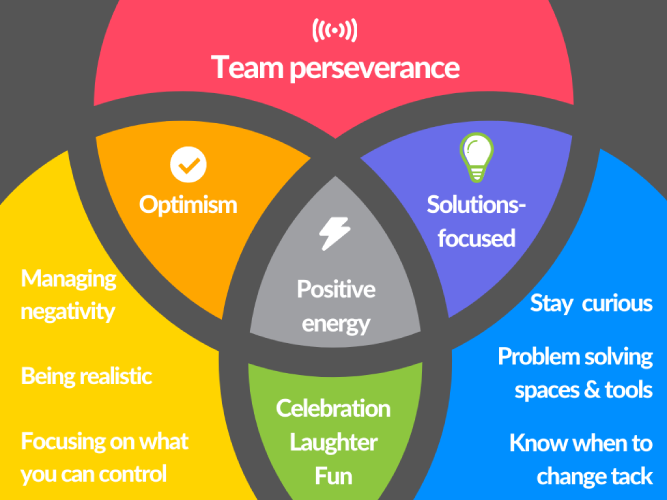‘Feedback is the breakfast of champions.’
– Ken Blanchard
What exactly do we mean by a team’s capability?
A team cannot be truly effective if doesn’t cultivate feedback loops and access to different support networks outside the team to extend their existing capability. Both shape the capability dimension of team resilience. This is an aspect of team resilience we all know but how well do we collectively do it in our own teams?
What practical ways can you build your team’s capability?
1. Ask for and act on team feedback
Without some way of finding out how your team is operating and against everchanging environmenal factors, your team runs the risk of becoming out of touch.
Identify first your team’s key stakeholders. Team clients are evidently stakeholders but who else does your team connect with who are key in delivering your work? In addition to the customers they directly serve, teams may have a wide variety of relationships both within and outside the organisation inclusive of other teams/departments, suppliers, sectoral and other stakeholders.
Think also about what you currently have in place to gather intelligence from key stakeholders. What do you not know but would like to know in stakeholder feedback about the team’s performance?
There may also be other ways of assessing team performance within their market or sector using quantitative data or other relevant benchmarks for your team’s sector.
Seeking feedback is one thing but also consider how you work in your team to respond and act on it for it to be meaningful and helpful to both the team and their stakeholders.
2. Build team capability through networks
In demanding financial times where the recruitment of additional team members is not always possible to meet the team’s needs, the team may need to lever additional guidance, support or resources from other networks and relationships. Support networks and relationships can have a variety of purposes for the team. Sample networks a team could connect to include:
– Professional bodies relevant to the team’s roles and work.
– Partnerships or networks relevant to your area of work or your sector.
– Communities of practice which are sources of professional or technical advice.
– Networking initiatives or industry events for teams / professionals working in your field.
3. Develop team member access to support and advice
Having a number of ways for you team to build their capability is vital to building team resilience in this area. Even the best team leader cannot be be all things to all people and the sole source of support for the team .
Discuss and raise awareness within the team of different sources of support available to team members from both inside and outside the team. This could include identifying such things as mentoring, training, coaching, debriefing support, technical and industry advice to support their access to wider networks.
4. Take responsibility for building your own professional networks
Take time out in your team to discuss what knowledge, skill and support the team requires and work then on developing useful relationships with other individuals or organisations.
Sometimes, making small connections with different networks or sources of support can make a big difference for the team. For example, when I worked as a CEO, informal coffee meetings with a fellow CEO I had met through a leadership network for our sector was an invaluable connection offering ongoing knowledge and mutual support.
If leading a team, know where you can go to personally connect for support and encourage teams members to explore and build their support networks.
To learn more to help your team…
For additional information on how team resilience workshops, team resilience assessment and team coaching could work for your team, click here.







 '
'